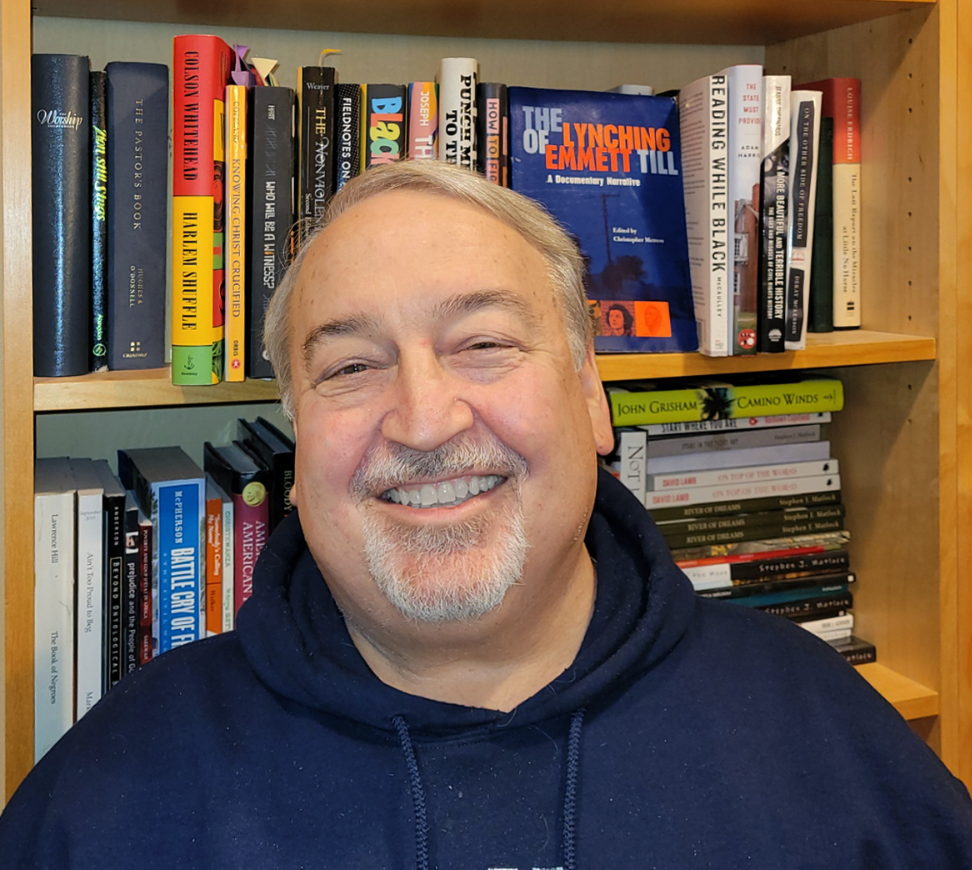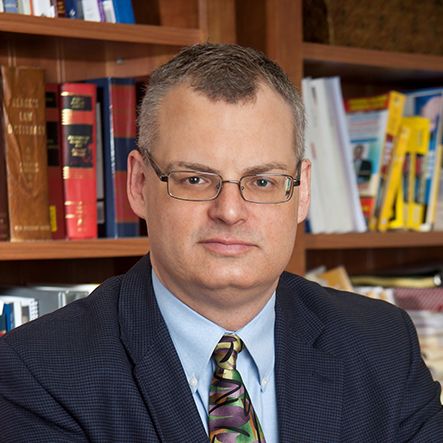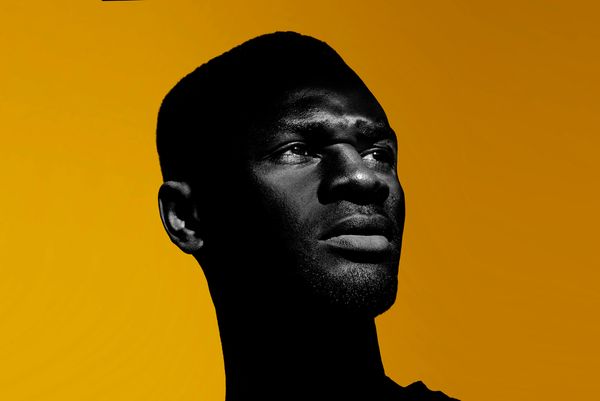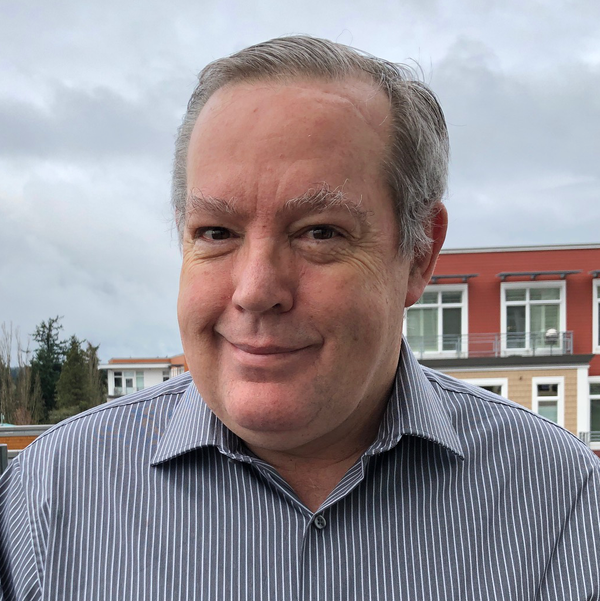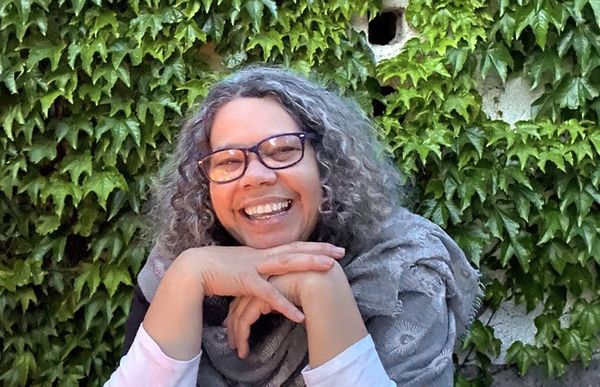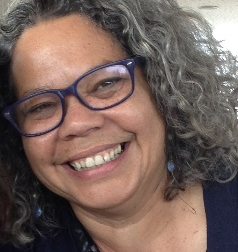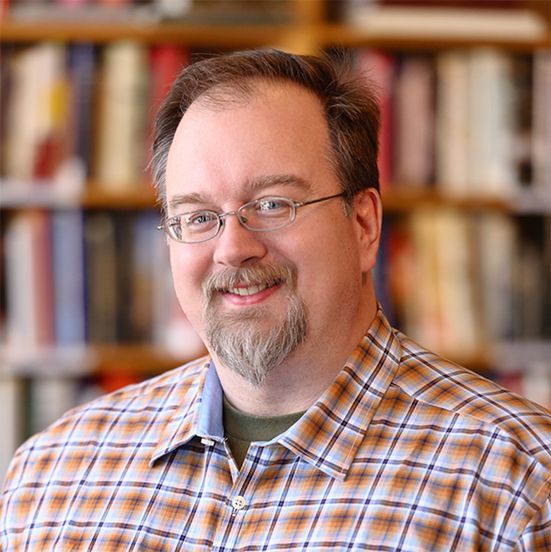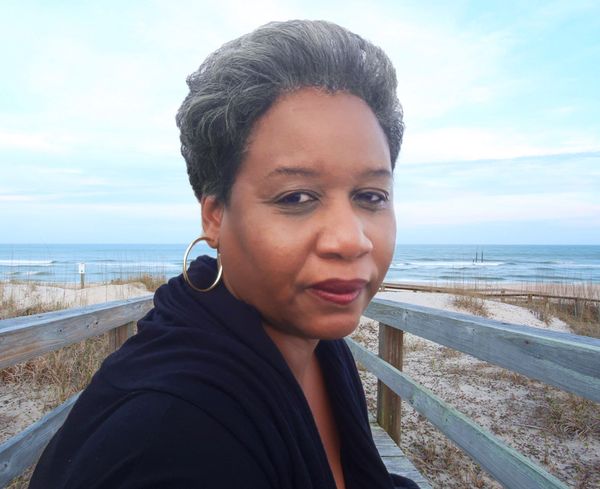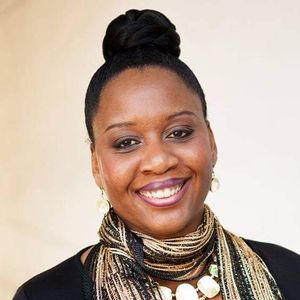Letter from the Editor:
Thanks to You
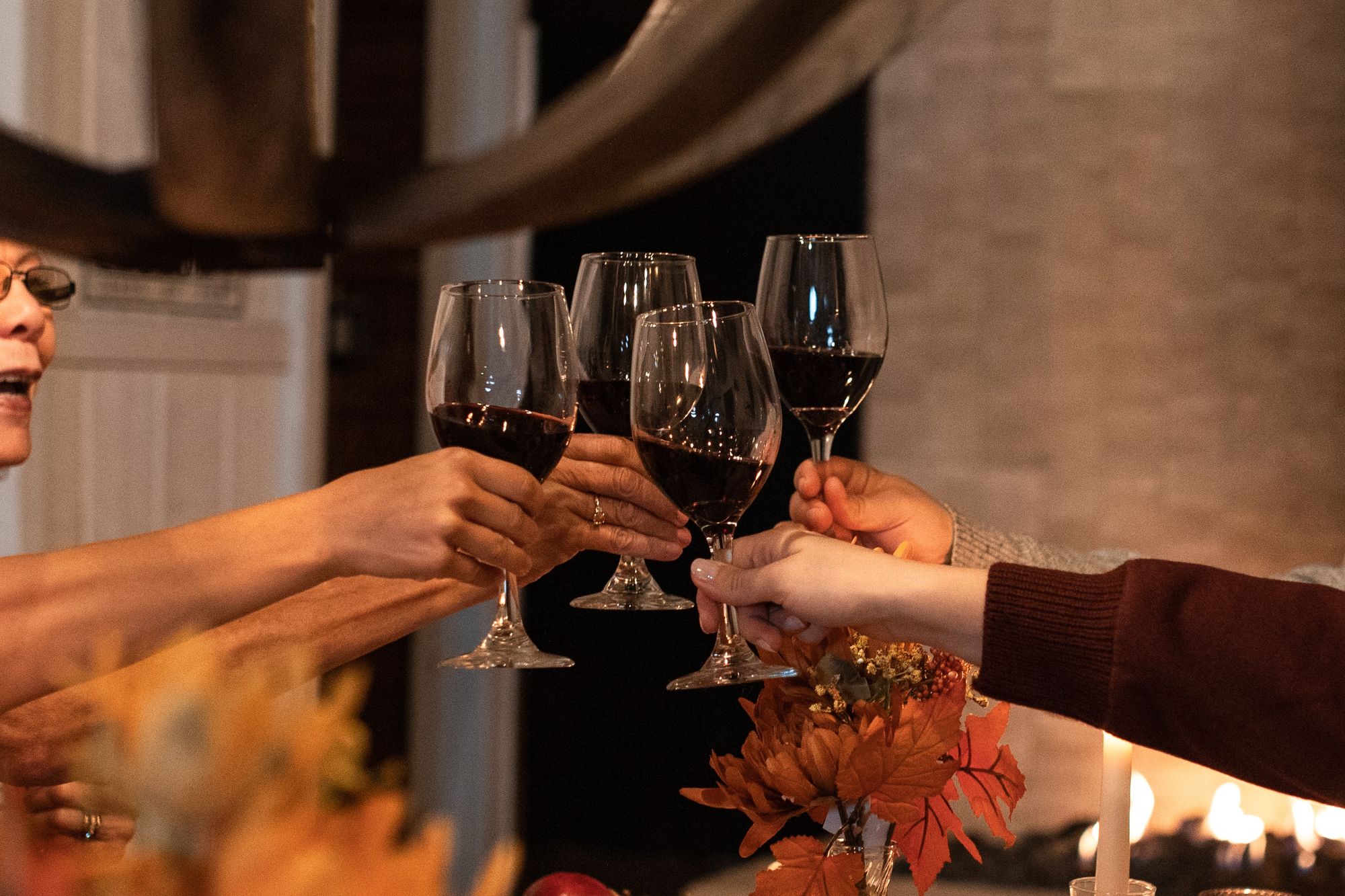
I can’t even imagine going to bed with my mate, in my own place, only to have an entire team of police break through my door and gun me down in the night. Somehow they blame him, for attempting to protect me with a legal gun. They’ve yet to hold anyone else even slightly accountable.
Okay, I can in fact imagine, but not to me—because I am white.
A guy goes running, as many do, as I do, only he encounters several good ole boys, and now he’s dead. The good ole boys will be judged by “their peers”—a bunch of good ole boys.
A seventeen-year-old walks the streets of Kenosha with an AR-15 and the police joke around with him. He murders several people, and the police let him walk away! Tamir Rice got all of two seconds before he was slaughtered for holding a toy gun, and he was twelve. “He looked older,” they said back then. “Poor Kyle is just a kid trying to protect the town,” they say now.
Have I mentioned that I grew up all of ten miles from where Rittenhouse committed his murders? Ten. Miles. I’ve walked those streets. I’m sure my parents felt it was perfectly safe. But that was before the issue of race blew everything up.

I am angry. Very, very angry. All the time.
I’ll be honest: when tasked with writing a piece about whatever it is in life I give thanks for, I didn’t think I could do it.
This is not to suggest that there isn’t plenty for which I am personally thankful. I am quite lucky, I have all the “stuff” in life one could hope for—a great family, long friendships, everyone healthy, and emotional and material comforts. All those people and things we tend to praise around a Thanksgiving table. I am grateful; don’t get me wrong.
These things are important, but they are not the ultimate bedrock on which happiness and self-fulfillment are founded. There is something deeper, more integral, a raison d’être that allows us to continue even without those things for which we typically give thanks. Although we humans have failed hard, repeatedly, and consistently for many, many years, we’ve also accomplished some glorious and amazing things: sending people to the moon. Modern medicine. The ability to communicate with people all over the world, just as I am now. Miracles, really. While they don’t make us better people, they’re still impressive and indicative of what we can do.
So what is this metaphorical sun? What makes the sky light up in a giant, glowing halo for me? The people who, in spite of it all—the greed, the power grabs, hatred and murder, all our many human failings—love one another.
This thing that keeps us getting out of bed each morning, putting one foot in front of the next, even in the face of utter injustice or unyielding fear or white-hot anger . . . some might call it God. Others, insanity. Survival instincts, perhaps. Whatever it is, however we might define it, it is bigger than each of us individual beings. It’s a sense of something beyond us, all-encompassing, to which we belong and contribute and make the world better, even if just in fits and starts.
It is this thing, I believe, that ultimately makes us happiest and offers us cause to give thanks if we can just get close enough to it to have some sense of our place in it and faith that it’s moving us forward. I am not religious but that is, I suppose, why so many worship so fervently and have for so many millennia.
I have worshiped the sun as the source of all life on earth, and for much of my life self-defined as a humanist, but the latter has been a real struggle in the face of everything I’ve learned about our species over the years. The unquenchable thirst for power seems to drive far more of us, more often, than altruistic traits. And yet I get up each morning. I keep on putting one foot in front of the other. And despite the heavy clouds that so often seem to darken my vision, the sun insists on poking through.
So what is this metaphorical sun? What makes the sky light up in a giant, glowing halo for me? Honestly? It’s our human family. Seriously! I’m not being obsequious and I don’t really mean just OHF, but rather the people who, despite all of it—the greed, the power grabs, hatred and murder, all our many human failings—love one another.
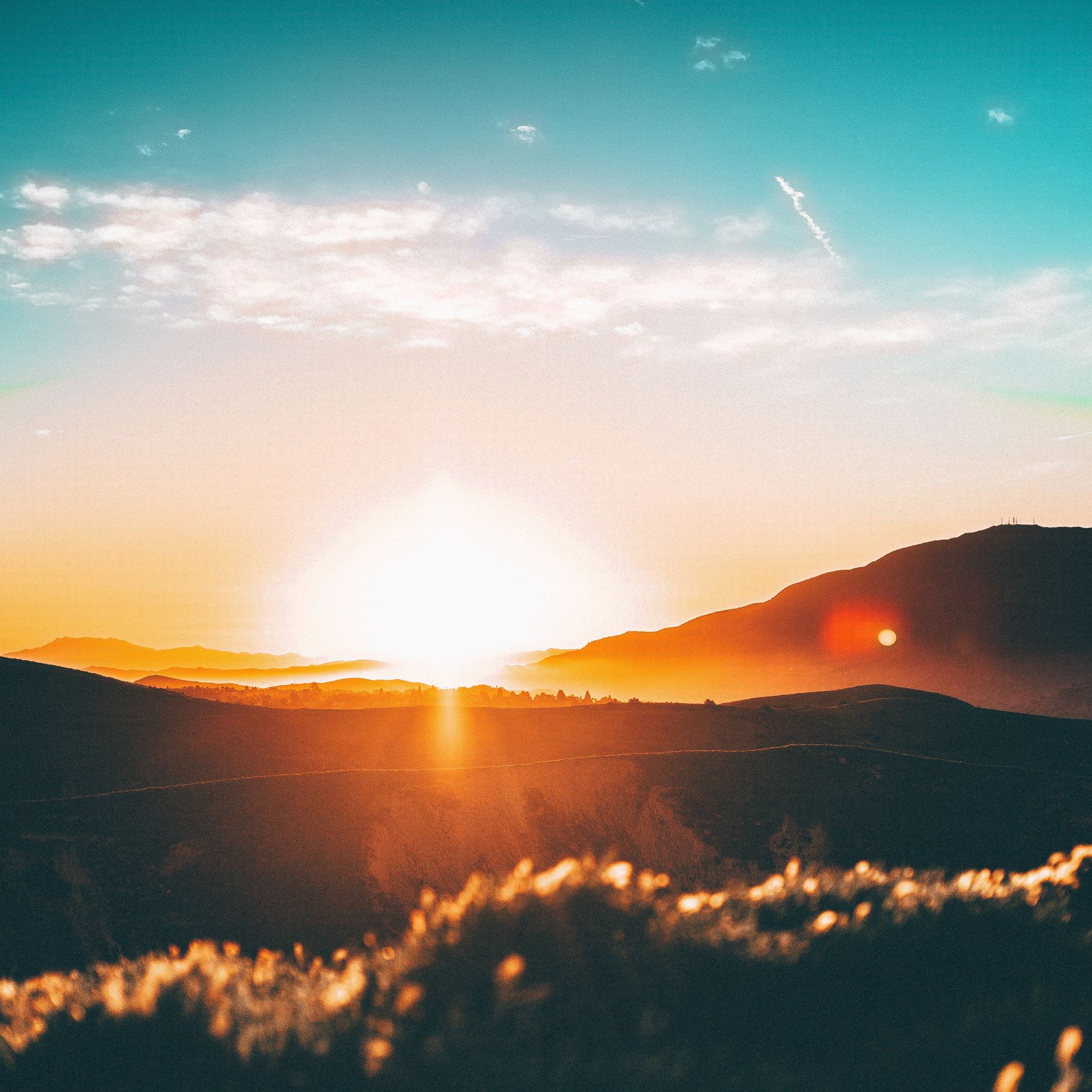
It’s said that white people can’t grasp what it’s like to be Black in America; to some degree, I’m sure that’s true, but I also agree with Christienne L. Hinz in Fieldnotes on Allyship: human emotions extend to all, and white folks have seen enough to understand the pain they’re inflicting. I might not feel the depth and all the nuances of your pain, but I hurt with you—I get it. So I am very thankful that you’re willing to look past my hue.
I don’t know most of our readers as intimately, of course. I might not know names or faces, ages or genders, the least bit of your demographics, but nonetheless, I can say with absolute certainty: you are exceptional people. You are givers. You look beyond yourself and into the hearts of others.
At a moment of history when people are digging their heels in and shutting their eyes tight against the existence of the injustices Black, Indigenous, and People of Color endure, you’re opening yours wide. You choose to visit a website with a very narrow, explicit remit of demonstrating how we can all improve at loving one another. When time is precious, as it typically is, you choose to spend your time reading about how we can make this world a better place. And our numbers are growing! While most forums just seem to expand the hate, OHF readers are proof that there are pockets swelling with unrelenting love across the globe.
When this world leaves me weary and dispirited, you give me hope in humankind. So I thank you; you are my raison d’être and I’ll raise my glass to you this Thanksgiving.
Let me end with a poem by Jesse, a great writer and great human who somehow continues to get even better at both. His words sum up my sentiments beautifully.
Heart Knows
At the centre of who we are
a heart beats with love.
Caged under skin and bone
we feel it thump
each second of our existence
with an unwavering ambivalence
at the limits of our understanding.
In doing so
the heart remembers its function
is to give rhythm to being
and to respond at a pace
to which we can dance.
This is how we exist
in between the spaces of
experience
as students practising
the mystery and art
of what the heart comprehends.
—Jesse Wilson
Happy Thanksgiving to all,
Sherry Kappel
Our Human Family, Managing Editor
The Stephen Matlock Interview
In this week's “OHF Family Tree” installment, we catch up with OHF Weekly senior editor Stephen Matlock about embracing Blackness, how America's past has formed its present, and the prerequisites for real change.
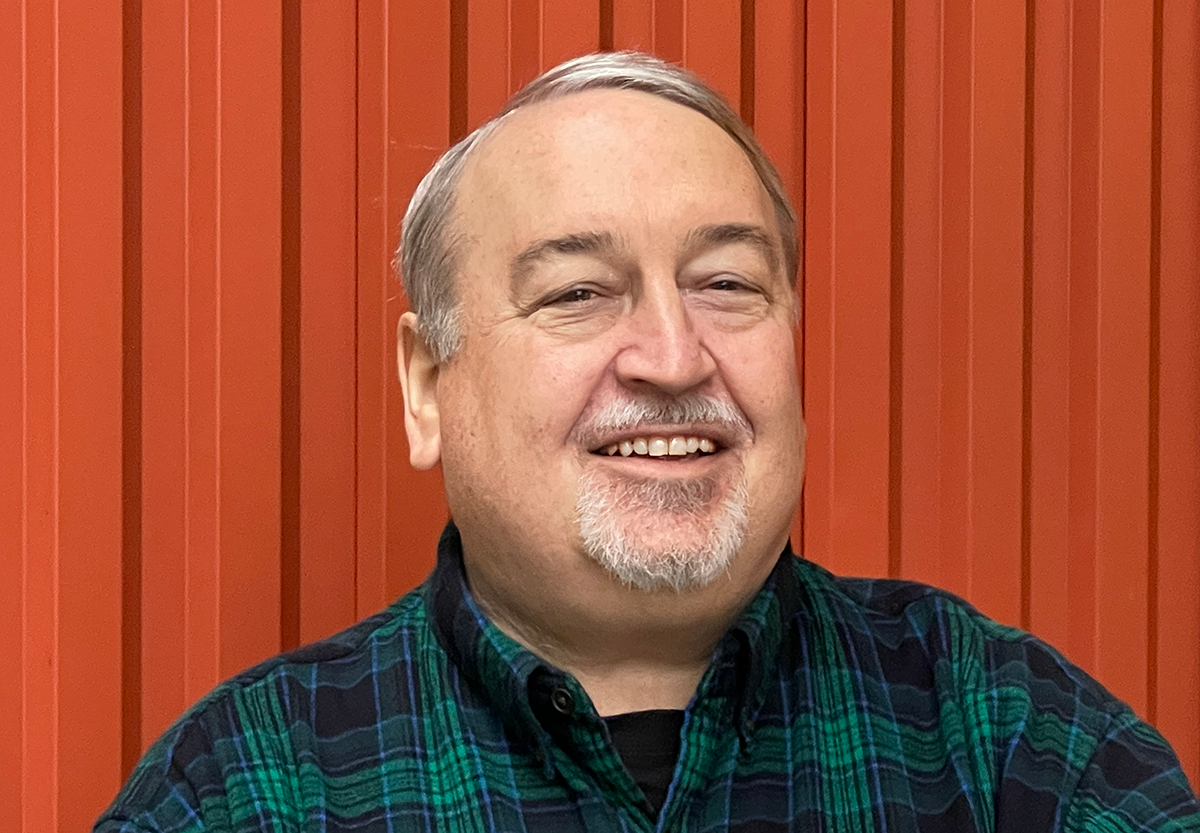
OHF Weekly In four sentences, how would you tell us you’re on Team Racial Equity without saying you’re on Team Racial Equity?
Stephen Matlock Caring for our fellow human beings is the most important thing in the world.
Bringing people into their fullest enjoyment and expression of their humanness is our top priority—these are responsibilities that we all have, and we must serve them in that great dance of life that started before we were born and will continue after we die.
What was stolen must be returned; what was lost must be found; what was destroyed must be re-created; what was hurt must be healed.
When we die the only part of us we leave behind are the works we have done to help and heal others.
OHF Weekly What was the moment you decided to write and publish your works for the world to read?
Stephen I had been working on understanding race in America in my reading for a few years and simultaneously was in a local writing group. One meeting we started with our usual free write prompt where we’d write for ten minutes based upon a random sentence—and then the sentence sparked a story about coming of age during the 1950s in the segregated South. From that exercise I discovered that I wanted to write stories that would engage with people emotionally to understand the lives of the characters, and I wanted people to read them and respond.
What I experienced when I read Brotherman was the scope of the multifaceted nature of being Black—there is simply not just one story, one experience, one way through the minotaur’s maze of American culture . . . because there is no one way of being Black.
OHF Weekly One thing readers will learn about you in reading your article “My Journey into Blackness” is that you were prompted to educate yourself about “Blackness” and became a voracious reader. What books have you read? Did one or two books tell you all needed to know?
Stephen Goodness, that’s a hard question to answer. I’m always reading. I have more than two dozen books in my to-be-read pile on a library cart that I bought just to keep them organized, and perhaps 300 more books that I’ve read on my shelves or stacked in my office about racism and faith. I don’t think any two books could encapsulate the whole of the Black experience, but two of the books I read near the beginning of the journey were the ones that helped to bring light to my eyes.
The first is Brotherman: The Odyssey of Black Men in America—An Anthology, edited by Herb Boyd and Robert Allen. Okay, so I’m kind of cheating here, because this is not just a single story but the E Pluribus Unum of Black thought in the sense that there are multiple streams and multiple lives that come together into a Black men’s chorus. It starts with the words of Frederick Douglass and continues through the modern era with the voices of men such as Malcolm X, Sidney Poitier, and other Black writers and thinkers who might not be as familiar to many readers.
What I experienced when I read Brotherman was the scope of the multifaceted nature of being Black—there is simply not just one story, one experience, one way through the minotaur’s maze of American culture. From the eyes of a white man who had been trained to see “Black” as just the opposite of “white,” this book gave me an understanding of the lives of dozens of Black men who shared their joys and pains of being Black, sometimes similar to each other, more often conflicting and contradictory because there is no one way of being Black. For white people who are ready to dig more deeply into the nature of the people around them, this is a great first book to read.
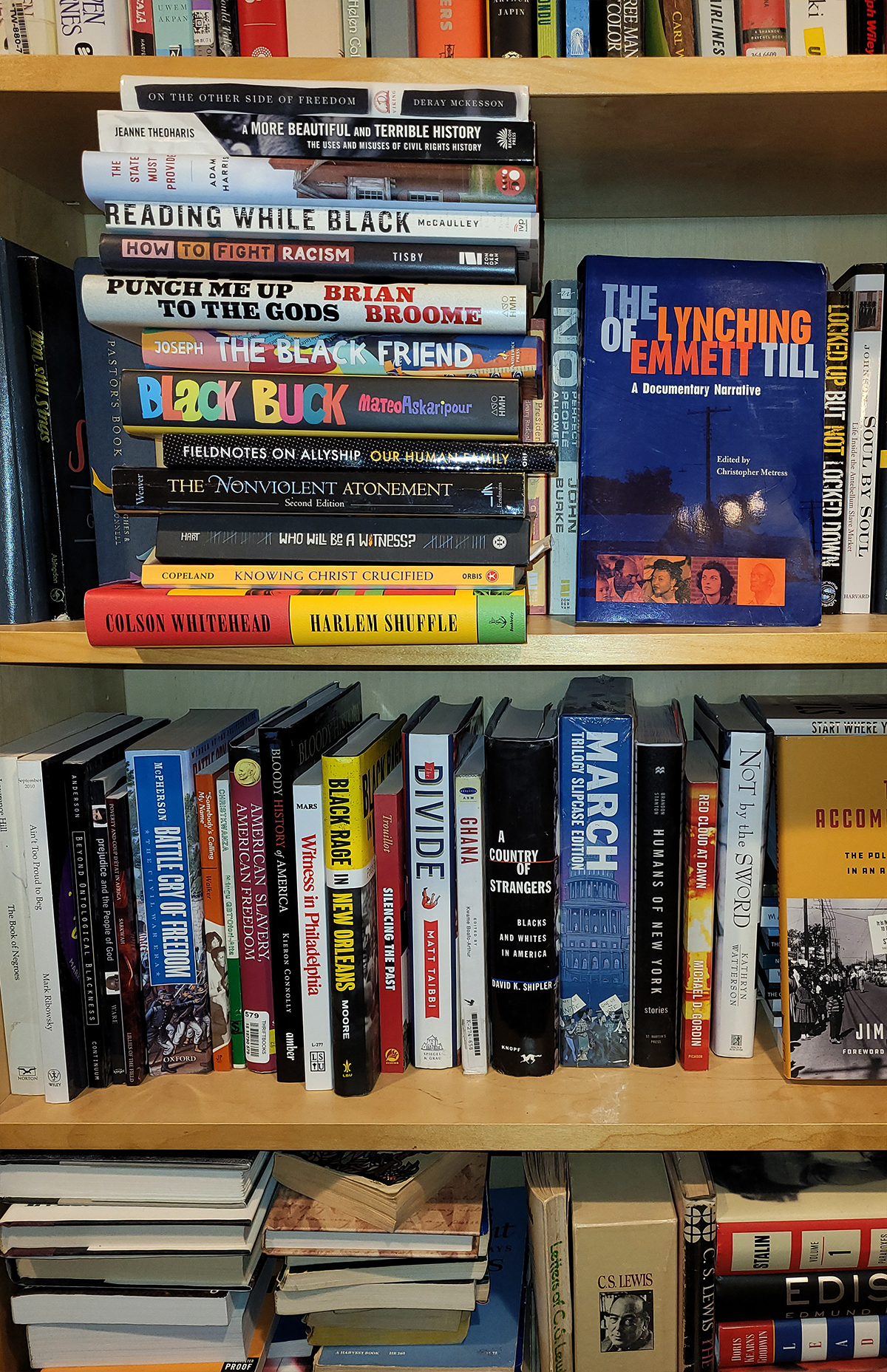
The other book is perhaps more challenging in that it focuses on the experience of a Black child in Mississippi. The Lynching of Emmett Till: A Documentary Narrative (The American South), Christorpher Metress, author. There is perhaps a greater awareness today among white people of that awful incident in August of 1955 when a fourteen-year-old boy was brutally murdered by a mob of white men, but I lived my entire life without knowing a thing about this.
I first found out about this fifty-four years later in a casual conversation with a friend who referred to Emmett Till’s lynching. I started checking this out. What floored me was that my Black friends knew all about this. To them it was common knowledge. I had grown up, been educated through the college level and was a history major, yet none of this story was ever taught or mentioned. But none of my white friends had any idea except those who had connections with Black people. The book itself was a record of one terrible episode in America amidst a long series of terrible episodes, told through newspaper and magazine clippings and quotes from films and news reports.
It was not just a wake-up call to the brutality meted out upon Black people. It was the shock of awareness that so much of American history had been withheld from me, deliberately or perhaps just through indifference. It was a moment when I knew that I could not hope to understand the lives of Black people if I depended upon the words of white people. This book pushed me to consume more widely the works of Black people. And this book still drives me to insist that we teach our children all of American history—not just the stories of white heroes but also the stories of the beaten and wounded, the enslaved and killed heroes who made the success of America possible. You cannot understand America until you understand all its past and how that past has formed the present.
Changing our way of thinking is the thing that will change us.
OHF Weekly In your opinion, what’s the biggest obstacle to people changing their race-based thinking and actions for a more equitable worldview?
Stephen Disbelief. While I see that fear is a strong motivator to resist change or even to react negatively to change, I think the deeper issue is the disbelief that people have about themselves as able to be anything other than who they are in the current moment. Most people—perhaps the vast majority—are content to live their lives exactly as they are, accepting the limitations they live with as the inevitable results of a world system that is bigger and stronger than they are. By believing that they are limited, they are then frightened by change as something that would shake them loose from what they are used to, even if what they are used to is a life of smallness and ineffectiveness.
Changing our way of thinking is the thing that will change us. For so many people, the idea that they would change that radically is absolutely frightening and beyond their belief that they could live that way. The current system of race-based thinking and acting is comfortable and meaningful to most. Asking people to change, even attempting to woo them into change, is asking them to shake off their current beliefs and to accept an entirely new, challenging, and possibly life-altering way of living. We are born open, curious, and accepting. In my stories, I’m asking them to re-believe in something they stopped believing in long ago: that their lives matter, that their lives have meaning, that they are not only worthy of love but are capable of loving others.
OHF Weekly To write about racism, racial inequity, oppression, and the like, writers have to dig deep into a disconcerting reality, sometimes that involves self-examination. What’s been your most revealing article and why?
Stephen I’d have to go with “My Journey into Blackness,” the first one that I wrote for Our Human Family on Medium. I submitted an article that described my journey from being an isolated but comfortable white American male to a guy who began questioning that comfort and accompanying worldview, and the revelations afterward.
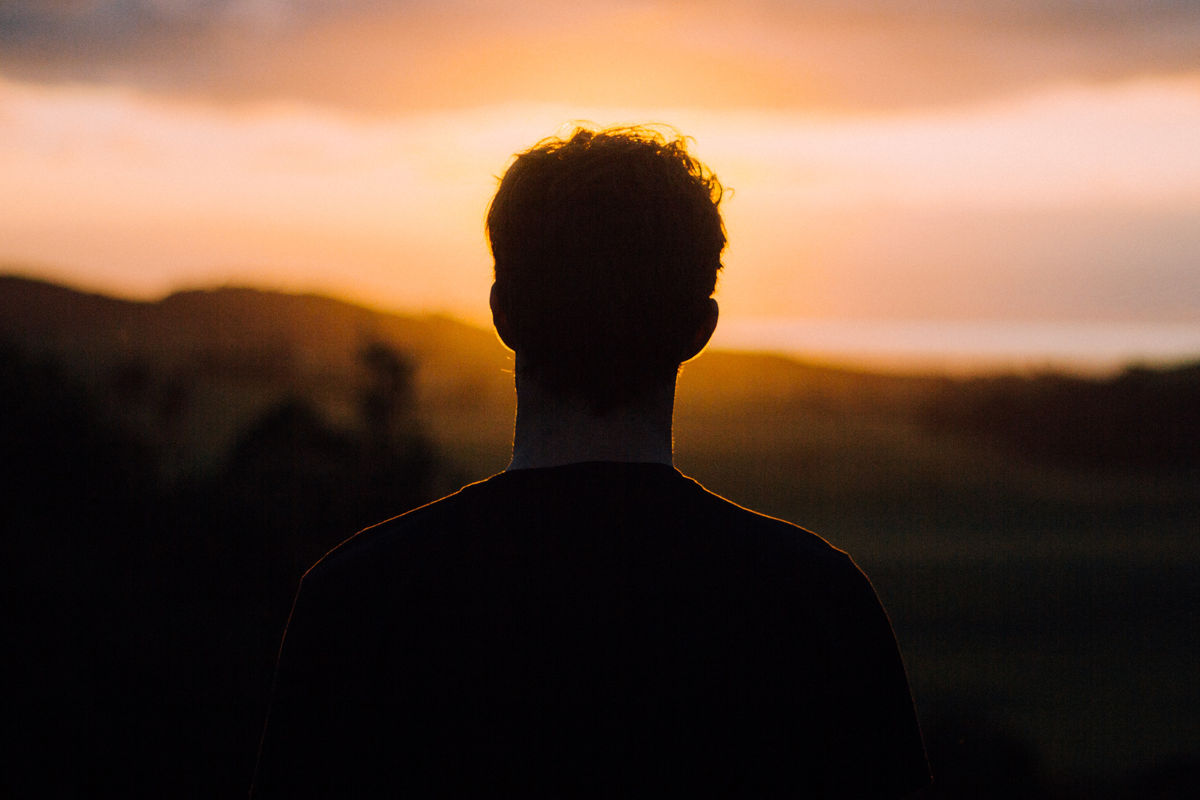
The pivotal moment for my change occurred during a confrontation between a Black man and me in a class we were in together. After weeks of white indifference to his participation, he blurted out, “Do you know that I‘m Black?” From that moment on, I began seeking information and relationships to help me understand the Black people to whom I'd paid little attention before.
Clay pushed hard for me to dig deeper and find the truth, working with me to shape the piece into something worth reading. And then he put this title on it that I had a very hard time accepting: “My Journey into Blackness.” “What, I’ve been journeying into Blackness? I’m not Black, and I have no way of living that experience.” But I saw what he was getting at: a deeper understanding of the human experience that was far more expansive than my fifty years of living as a white man in a white majority culture.
I can read the article now, three years later, and see where I’ve grown from there, continually working to increase my connections with my own self and with those around me—to be more fully human, open, understanding, loving, and careful with the lives of my friends. My hope is that my attempt to be truthful then and truthful now helps me to be someone who listens, that people will listen to, and trust enough to believe that they, too, can make the steps on the journey that I’ve been on.
OHF Weekly What is the one thing, one principle, you’d like for your readers to take with them from your body of work on racial equity and why?
Stephen That this life matters. In some of my writing, I target white readers, not exclusively, but my messages are crafted to reach those who have a limited worldview that’s concerned with control, comfort, and self-contentment. Sure, we all want to find a place where we belong and stay there, but I see that we as white people seem to limit ourselves by choosing to keep everything monochromatic.
I want to awaken white people not only to 1) the variety of people around them who fill the world with richer experiences, and 2) the limitations that we put upon our own joy by choosing not to see the people around us. There is so much more to being alive than just breathing, eating, and sleeping self-concern.
. . . there are those who have always been there teaching and speaking peace and justice, who have been patiently searching for the lost, who have been healing and embracing, who have been fostering changes in the lives of people who are lost in the shadows.
A life that is full of a variety of people and relationships is incredibly satisfying, far more than what we have been taught to accept. There’s a great line from the film Auntie Mame: “Life is a banquet, and most poor suckers are starving to death.” Well, I wouldn’t use the term “poor suckers,” but I feel that line reflects a mentality common among white people in that they maintain a limited set of relationships and choices. I want to create an awareness, a thirst, in white people for so much more than that.
OHF Weekly With all that's going on in the world, why do you still write about racial equity, allyship, and inclusion?
Stephen I was born in the 1950s and have lived through episodes of American and global upheavals. I’ve experienced the decades of assassinations, of national malaise, of the destruction of the middle class, of the waves of terror after 9/11, and the frenzied attempts by some to establish the American Confederacy, Version 2.0 and split us apart by race, politics, and religion. Those forces are powerful and work to keep us divided. From my viewpoint, those forces are way more successful than they should be.
Still, I see that there are those who have always been there teaching and speaking peace and justice, who have been patiently searching for the lost, who have been healing and embracing, who have been fostering changes in the lives of people who are lost in the shadows. Those heroes have not been deflected from their vision of a world free of racism and have not wavered in their efforts.
I see the changes they bring into being because they are faithful, patient, willing to spend time on people, caring, empathetic, and hopeful. I see the real change that they make, and I believe that the changes they make are lasting because they are made one by one. And so I believe I can be part of that small, slow, one-on-one change that makes all the difference in the world.
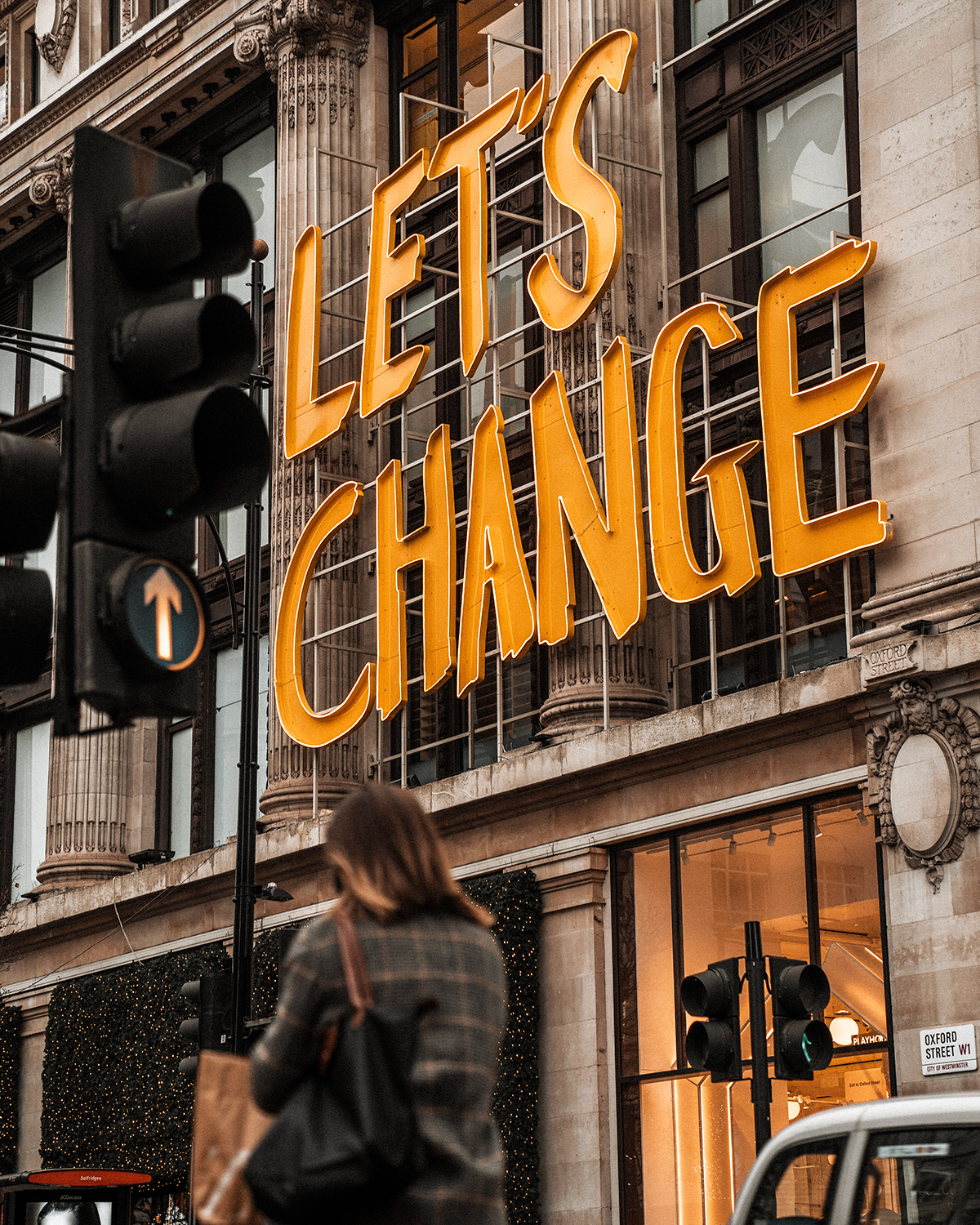
I will always be speaking and writing, loving and hoping, believing and dreaming. This is always how the world is changed for good.
OHF Weekly Stephen, thanks for sitting down with us today.
Stephen It’s been a pleasure working with everyone, Clay, and I’m glad we met online.
Top photo courtesy of Stephen Matlock.
Stephen Matlock’s Short List
Catch up on a few of Stephen’s earlier writings for Our Human Family below, including “My Journey into Blackness.”
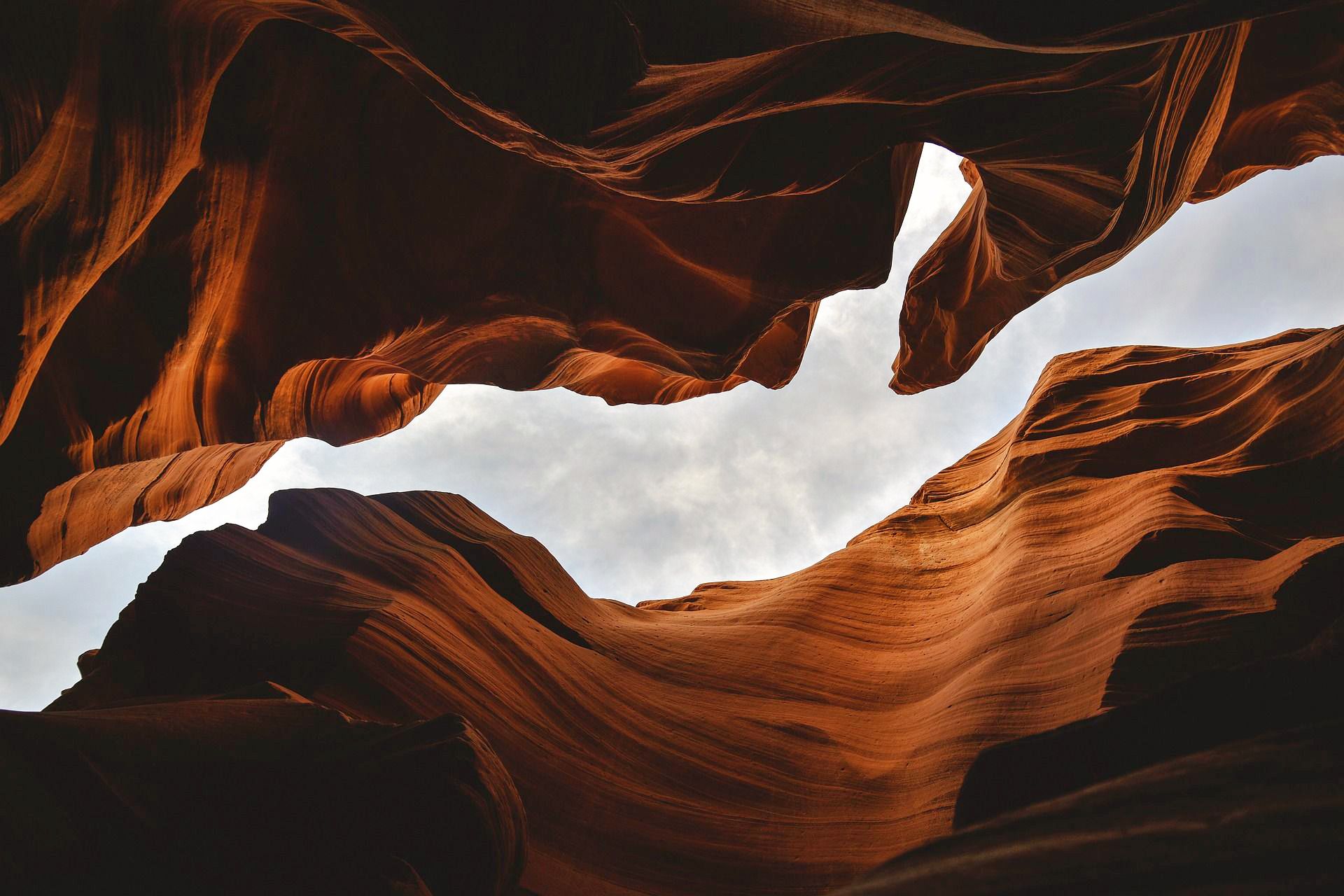
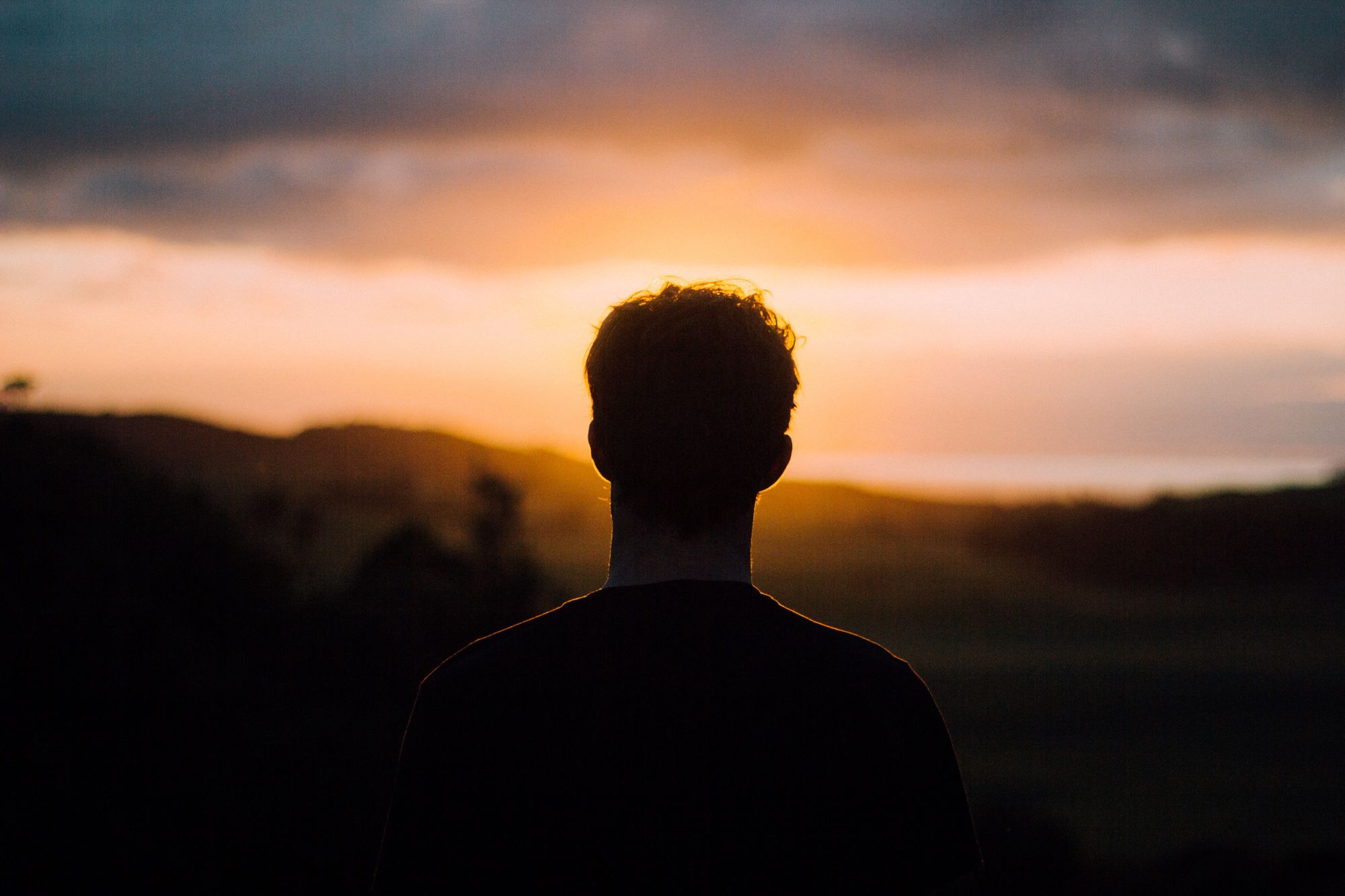
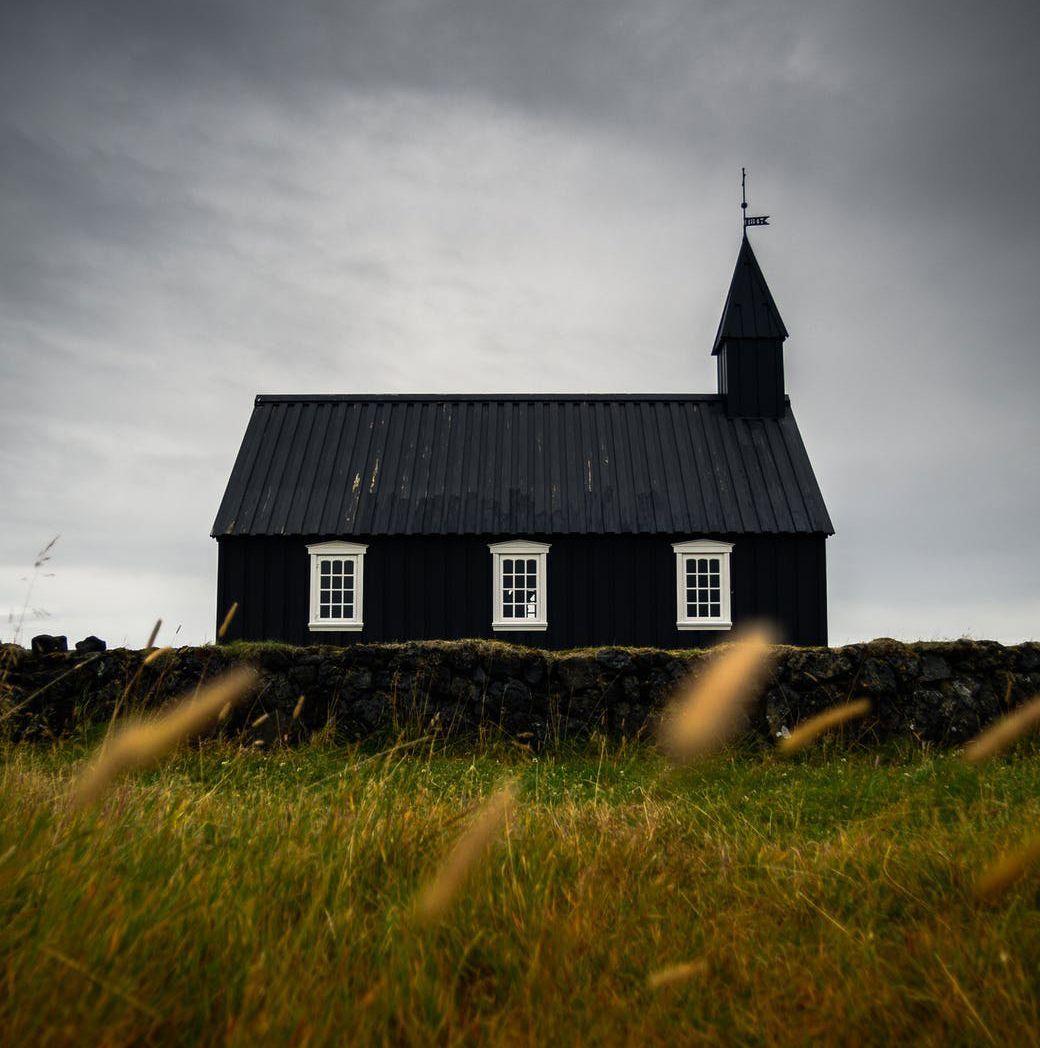
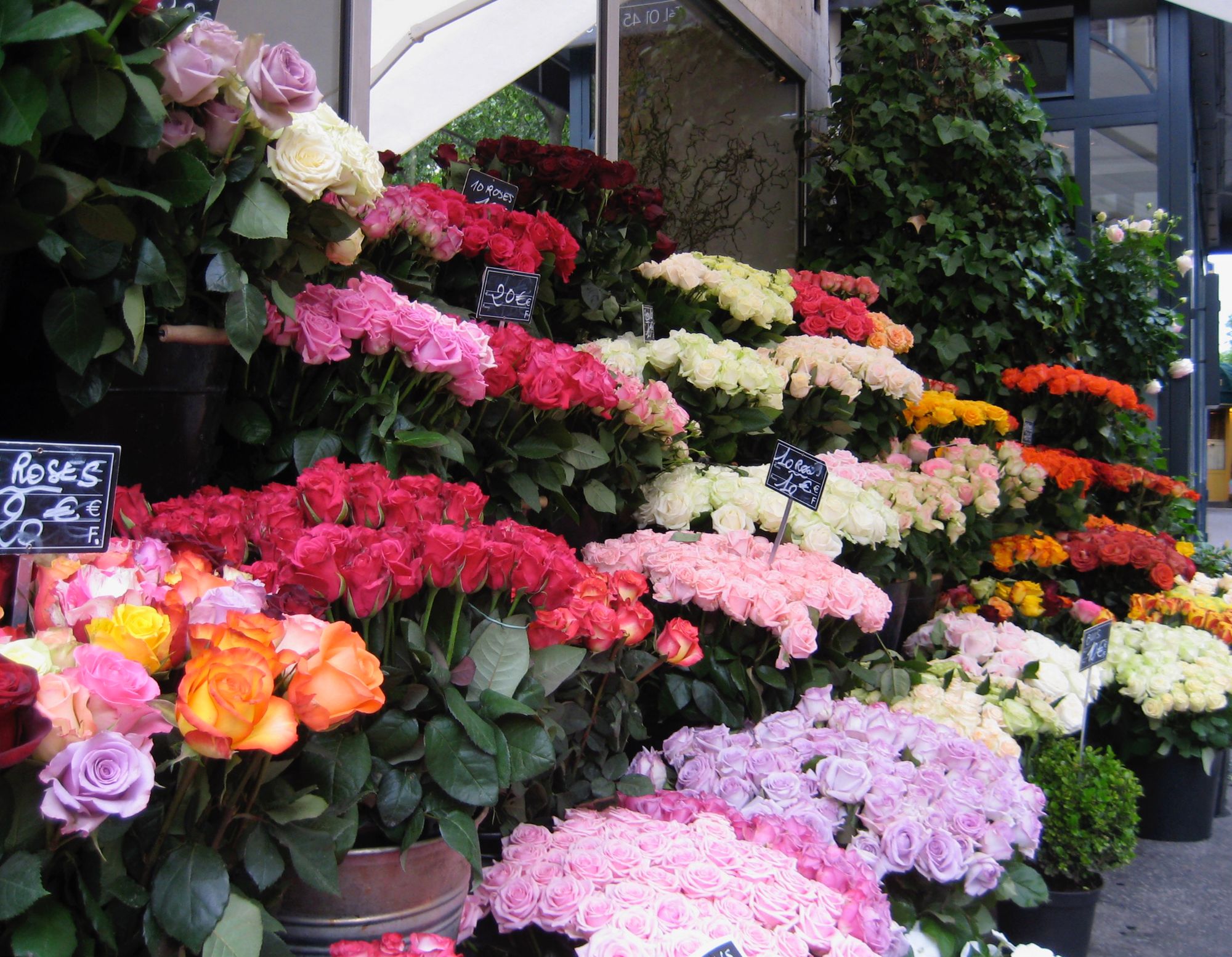
Want even more Stephen? Now? We can do that, too. Here’s the link to all of Stephen’s OHF Weekly articles.
Subscribe to OHF Weekly
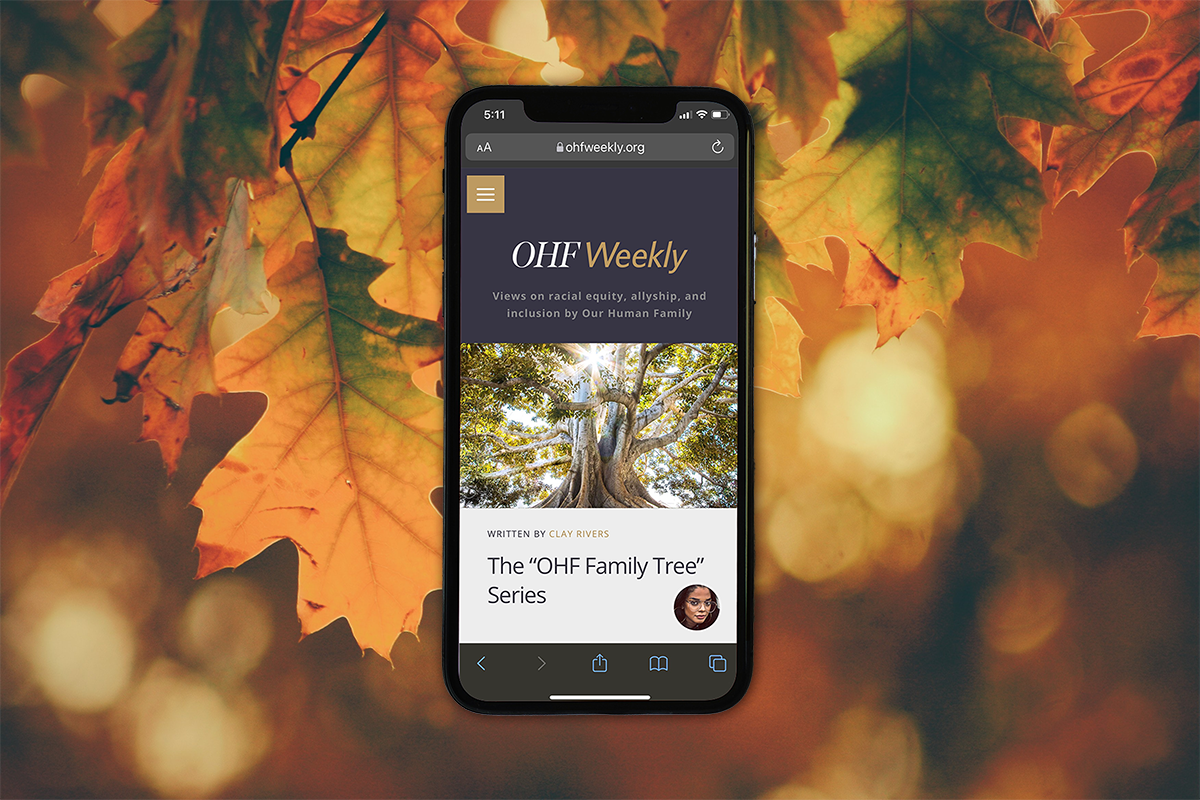
Subscribe for free email delivery of OHF Weekly and articles. In the new “Our Human Family Tree” series, OHF Weekly presents profiles on the writers and articles that have established us as a valuable and accessible resource for people interested in racial equity, allyship, and inclusion. Don’t miss out. Sign up now!
Please Give
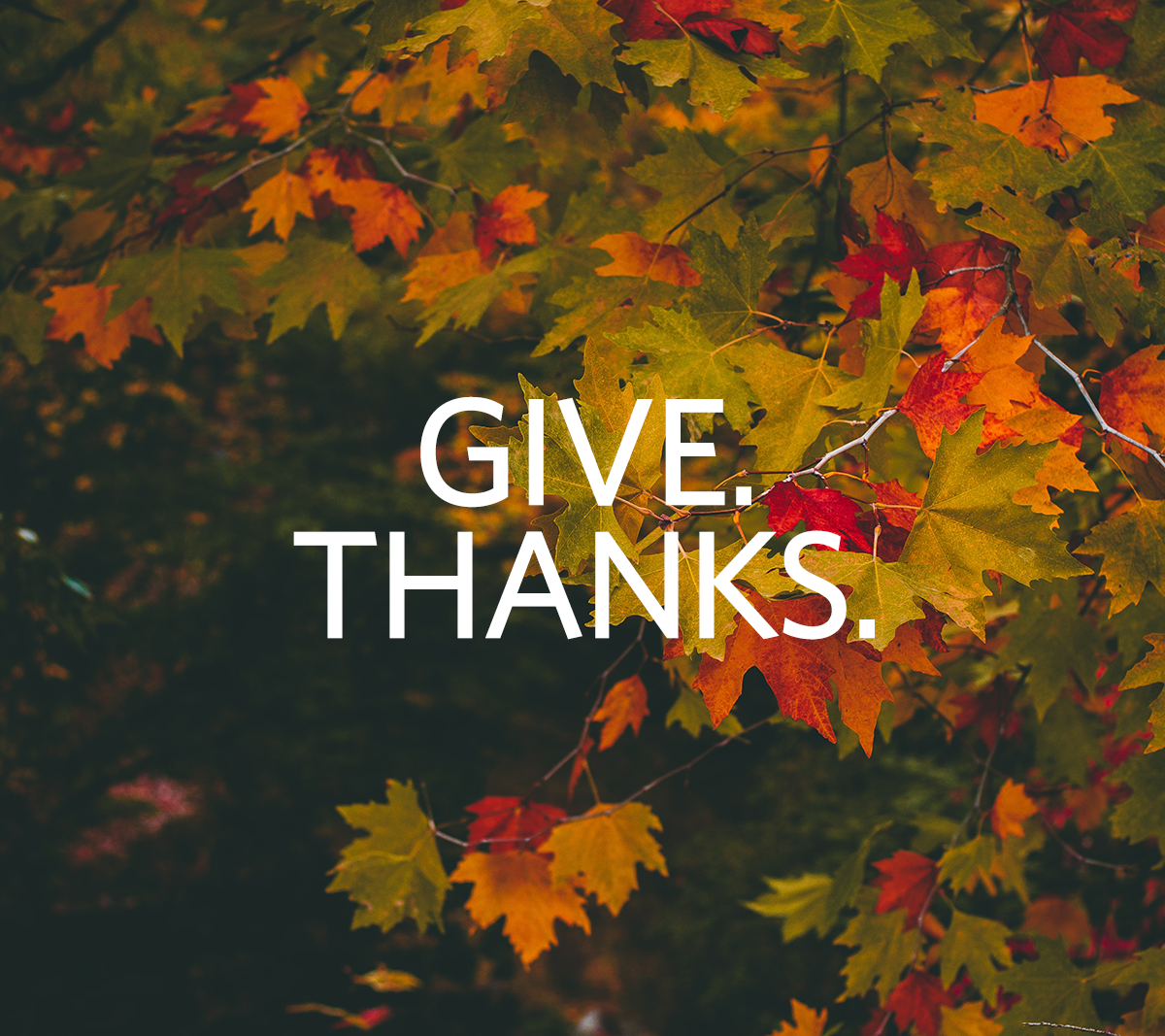
Please give. The subject of racism is broad and complicated. Its components require close examination and nuanced explanation. While our message is singular, we must tailor our conversations and presentations to bring awareness to these aspects. These items must also be updated to reflect the challenges of the times.
We cannot do the work of racial equity without the support of people like you. In the same way that it takes a village to raise a child, it will take all of us to end racism and create a more equitable world. Racism does just harm its victims, it harms its perpetrators and bystanders. Racism harms everyone. Our Human Family, a registered 501(c)(3) charitable organization, is working to bring an end to racism and establish a society rooted in racial equity.
Your tax-deductible donations will help us continue our anti-racism work.
Please support the critical work and word of Our Human Family at the forefront of the national conversation on better race relations and widespread equality in America. Thank you for your support.
Final Thoughts
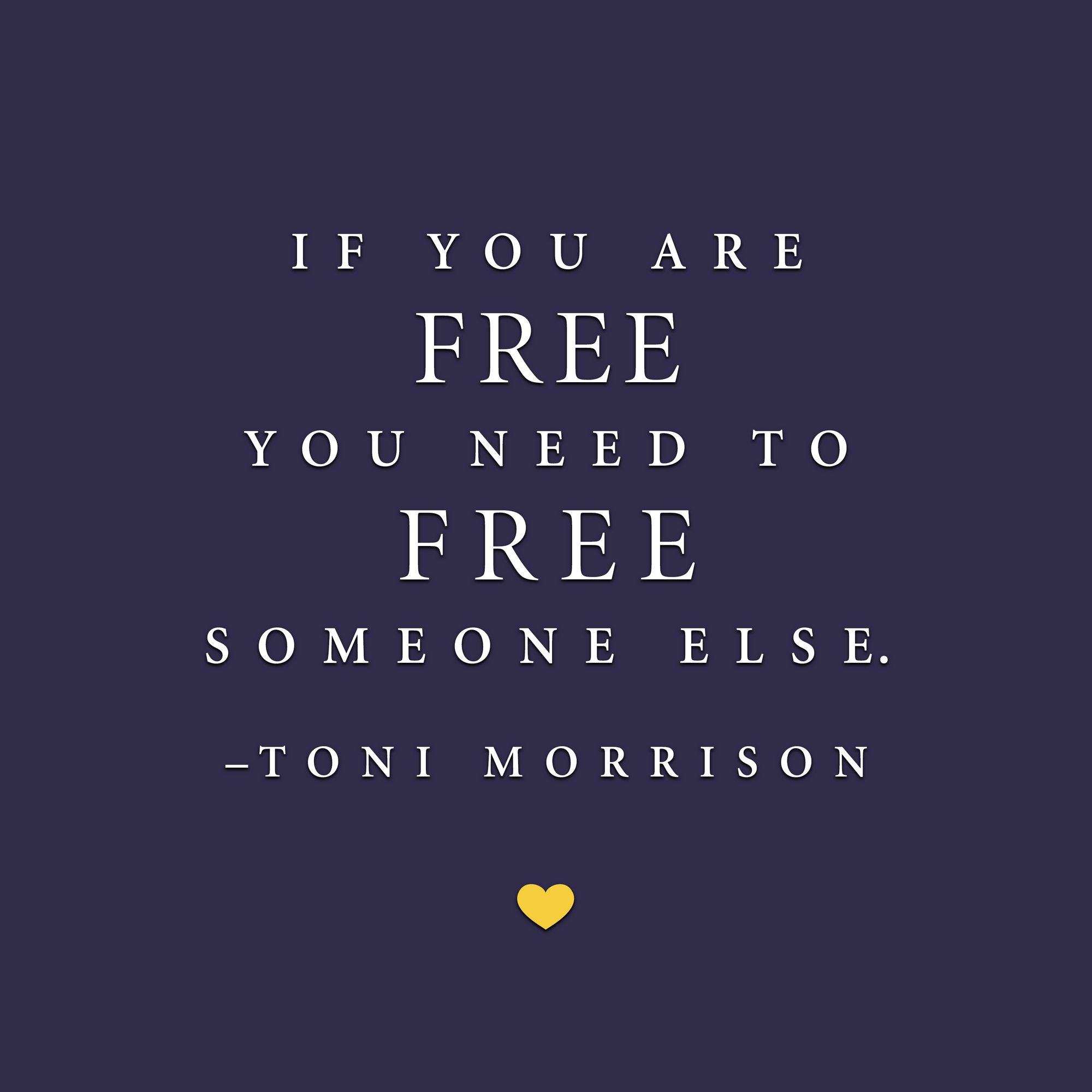
Love one another.
Top photo by RODNAE Productions from Pexels



